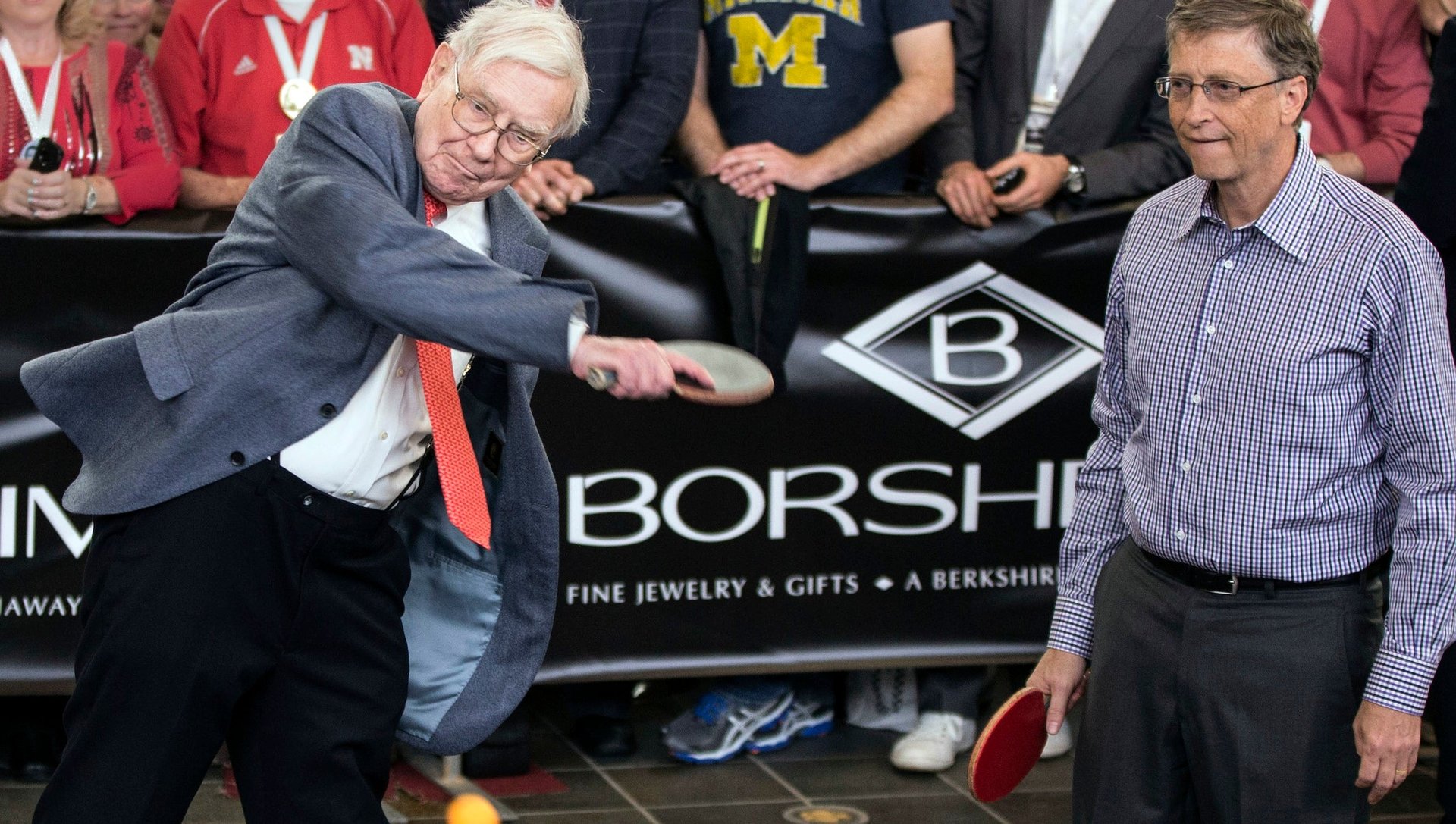What Warren Buffett had to say about Goldman Sachs, his successor, and other important questions
The Warren Buffett extravaganza is now over. The Oracle of Omaha discussed a range of subjects at Berkshire Hathaway’s annual meeting, from his birth in November 1929 to what keeps him up at night. The media, shareholders and analysts were able to ask Buffett and Charles Munger, Berkshire’s vice chairman and Buffett’s right hand man, a variety of questions for several hours. Some of the tough questions that Quartz had wondered about came up during the gathering. This is what we learned:


The Warren Buffett extravaganza is now over. The Oracle of Omaha discussed a range of subjects at Berkshire Hathaway’s annual meeting, from his birth in November 1929 to what keeps him up at night. The media, shareholders and analysts were able to ask Buffett and Charles Munger, Berkshire’s vice chairman and Buffett’s right hand man, a variety of questions for several hours. Some of the tough questions that Quartz had wondered about came up during the gathering. This is what we learned:
1. On newspapers:
Despite constant proclamations about the death of print media, Buffett is a fan of newspapers and bought more than two dozen of them over the last year. One of the meeting attendees asked Buffett a rhetorical question about whether there are other businesses with better rates of return than newspapers. That question drew applause.
Buffett said he expected his burgeoning print empire to earn a return of 10% after taxes, although he acknowledged that wasn’t going to have much of an effect at Berkshire. But he has a soft spot for them, saying Berkshire wouldn’t have made that kind of move for any other business.
2. On coal:
Berkshire’s biggest deal ever is still the $26 billion purchase of railroad Burlington Northern Santa Fe in 2009. At the time, it was a bet on coal and the transportation of it using Burlington tracks. But coal’s popularity has fallen off since then. That hasn’t hurt Berkshire, yet at least, since it has taken advantage of the natural gas boom in the US and the transportation of it.
Buffett said as a result, the gains from the railroad business represent “significant money.” And he credits Burlington’s strong performance as one of the reasons why Berkshire is the fifth most valuable company in the world. Applause, applause.
3. On Goldman:
Buffett famously saved Goldman Sachs during the financial crisis, injecting $5 billion into the bank. As a result, he is now one of the bank’s largest shareholders. At the meeting, Buffett said he believes the banks are stronger than they have been in years and are engaging in less risky behavior. He also noted that Berkshire is the “800 number” that is called when there is a market panic—that’s when the “naked swimmers” turn to it for help.
4. On Buffett’s successor:
Given that Buffett is 82, one of the most critical questions surrounds his succession. Berkshire has made some moves recently that hint at longtime Berkshire lieutenant Ajit Jain possibly taking the helm after Buffett. Jain is in charge of Berkshire’s insurance investments.
There were several questions that touched upon who will succeed Buffett, most of which he dodged. Buffett did say the issue of succession is the top topic discussed at every Berkshire board meeting, and directors are in agreement on who that person should be. But when asked directly if that person was Jain, Buffett just said Jain is “remarkable in a lot of ways.” Munger also advised that his relatives in the audience shouldn’t be “so stupid” to sell their shares after Buffett is gone, to which Buffett added, “That goes for the Buffetts, too.”
5. And most importantly, on bitcoin:
Munger said he had no confidence in bitcoin being a universal currency while Buffett said he didn’t know about it. ”I’ll put it this way, of our $49 billion [in Berkshire cash], we haven’t moved any of it to bitcoin,” Buffett said.